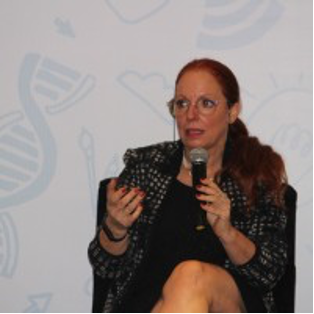Piercosma Bisconti Lucidi
With this fellowship, I am addressing the standardisation of AI systems, with particular focus on the standardisation request of the EU Commission in relation to the AI Act.

With this fellowship, I am addressing the standardisation of AI systems, with particular focus on the standardisation request of the EU Commission in relation to the AI Act.

The expected impact of the project is to provide stakeholders with a certification as defined in article 42 of the GDPR, thus improving trust between actors in a context of PII processing.

My fellowship focuses on several priorities and key gaps related to AI and cybersecurity standards applied in education.

This technical report, resulting from my fellowship’s contributions, is an equitable analysis of the relationship between Quantum Key Distribution (QKD) and Post-quantum Cryptography (PQC) technologies. It describes the two technologies' complementary nature and highlights their potential advantages and benefits.

"Once the revision is done, we will disseminate it across the different stakeholders, and it will allow the community to learn the newest editions of widely recognised international standards that support the cybersecurity certification and technical aspects of the process of revision"

Work on ICT readiness is essential for organisations facing increasing risks and threats in an unstable environment when they rely more and more on ICT, supplying them guidance to gain more resilience to infrastructures and organisations.

With AI’s evolution, a growing need for AI ethicists to address ethical, social, and psychological queries is evident. One gap, however, lies in the absence of standardised competencies for these professionals, causing hesitation among organisations to embrace AI ethics.

Blockchain has evolved into a transformational technology promising to offer secure, real-time transactions across different sectors and industries that will revolutionise the way we do business.

At the high level, ICT standards must establish a framework for ensuring trust, interoperability and interoperation via secure and reliable applications, as well as facilitate the stakeholder ́s engagement.

Standards for basic quantum infrastructures such as quantum information encryption in future quantum networks can support innovation in quantum technology and accelerate its uptake by European SMEs.

Quantum simulation will have a huge impact on the study of new materials and new drugs, as well as finding chemical catalysts to remove CO2 from the atmosphere or reduce the amount of energy to produce fertilizers.

I estimate that digital identities, and the way to ensure appropriate levels of assurance and handling of corresponding credentials, are key for the digital society.
